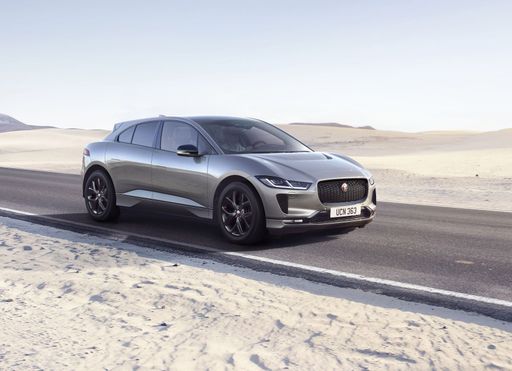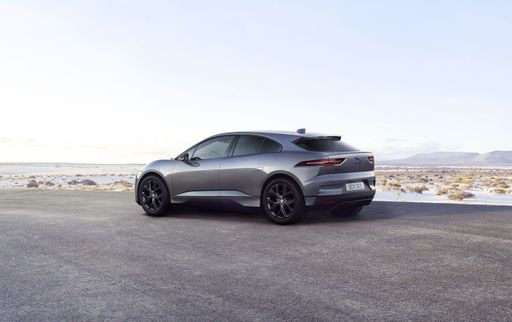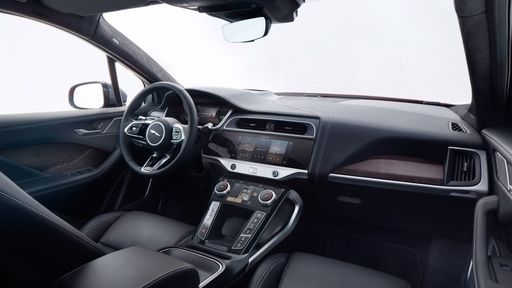Jaguar I-Pace vs VW Tiguan – Which one offers the better deal?
Everyday use, family trips or long-distance drives – here’s where the differences show.
Discover whether Jaguar I-Pace or VW Tiguan fits your lifestyle better.
Costs and Efficiency:
When it comes to price and running costs, the biggest differences usually appear. This is often where you see which car fits your budget better in the long run.
VW Tiguan has a significantly advantage in terms of price – it starts at 32800 £, while the Jaguar I-Pace costs 79200 £. That’s a price difference of around 46415 £.
As for range, the Jaguar I-Pace performs convincingly better – achieving up to 469 km, about 340 km more than the VW Tiguan.
Engine and Performance:
Power, torque and acceleration say a lot about how a car feels on the road. This is where you see which model delivers more driving dynamics.
When it comes to engine power, the Jaguar I-Pace has a evident edge – offering 400 HP compared to 272 HP. That’s roughly 128 HP more horsepower.
In acceleration from 0 to 100 km/h, the Jaguar I-Pace is clearly perceptible quicker – completing the sprint in 4.80 s, while the VW Tiguan takes 5.90 s. That’s about 1.10 s faster.
In terms of top speed, the VW Tiguan performs a bit better – reaching 242 km/h, while the Jaguar I-Pace tops out at 200 km/h. The difference is around 42 km/h.
There’s also a difference in torque: Jaguar I-Pace pulls decisively stronger with 696 Nm compared to 400 Nm. That’s about 296 Nm difference.
Space and Everyday Use:
Cabin size, boot volume and payload all play a role in everyday practicality. Here, comfort and flexibility make the difference.
Both vehicles offer seating for 5 people.
In curb weight, VW Tiguan is distinct lighter – 1599 kg compared to 2226 kg. The difference is around 627 kg.
In terms of boot space, the VW Tiguan offers slight more room – 652 L compared to 638 L. That’s a difference of about 14 L.
In maximum load capacity, the VW Tiguan performs to a small extent better – up to 1650 L, which is about 197 L more than the Jaguar I-Pace.
When it comes to payload, VW Tiguan a bit takes the win – 533 kg compared to 444 kg. That’s a difference of about 89 kg.
Who wins the race?
The Jaguar I-Pace proves to be performs better in key areas and therefore becomes our DriveDuel Champion!
Jaguar I-Pace is the better all-rounder in this comparison.

Jaguar I-Pace
Jaguar I-Pace
The Jaguar I-Pace represents a remarkable fusion of cutting-edge electric performance and iconic British luxury. With its sleek design and spacious interior, this model redefines what one can expect from an electric vehicle in terms of style and comfort. Its impressive driving dynamics and advanced technology make it a standout choice for those looking to make a statement on the road.
details @ media.jaguar.com
@ media.jaguar.com
 @ media.jaguar.com
@ media.jaguar.com
 @ media.jaguar.com
@ media.jaguar.com
VW Tiguan
The VW Tiguan presents itself as a versatile and practical option in the SUV market, combining a stylish design with a spacious and comfortable interior. It offers a smooth driving experience, making it well-suited for both urban environments and longer journeys. With its focus on safety and innovative technology features, the Tiguan remains a compelling choice for families and adventurers alike.
details @ Volkswagen
@ Volkswagen
 @ Volkswagen
@ Volkswagen
 @ Volkswagen
@ Volkswagen
 @ Volkswagen
@ Volkswagen
 @ Volkswagen
@ Volkswagen
 @ Volkswagen
@ Volkswagen

|

|
|
|
|
Costs and Consumption |
|
|---|---|
|
Price
79200 - 85500 £
|
Price
32800 - 51900 £
|
|
Consumption L/100km
-
|
Consumption L/100km
0.4 - 8.4 L
|
|
Consumption kWh/100km
25.20 kWh
|
Consumption kWh/100km
-
|
|
Electric Range
469 km
|
Electric Range
119 - 129 km
|
|
Battery Capacity
84.70 kWh
|
Battery Capacity
19.70 kWh
|
|
co2
0 g/km
|
co2
8 - 190 g/km
|
|
Fuel tank capacity
-
|
Fuel tank capacity
45 - 58 L
|
Dimensions and Body |
|
|---|---|
|
Body Type
SUV
|
Body Type
SUV
|
|
Seats
5
|
Seats
5
|
|
Doors
5
|
Doors
5
|
|
Curb weight
2226 kg
|
Curb weight
1599 - 1890 kg
|
|
Trunk capacity
638 L
|
Trunk capacity
490 - 652 L
|
|
Length
4682 mm
|
Length
4539 mm
|
|
Width
2011 mm
|
Width
1842 - 1859 mm
|
|
Height
1566 mm
|
Height
1656 - 1658 mm
|
|
Max trunk capacity
1453 L
|
Max trunk capacity
1486 - 1650 L
|
|
Payload
444 kg
|
Payload
460 - 533 kg
|
Engine and Performance |
|
|---|---|
|
Engine Type
Electric
|
Engine Type
Plugin Hybrid, Petrol, Petrol MHEV, Diesel
|
|
Transmission
Automatic
|
Transmission
Automatic
|
|
Transmission Detail
Reduction Gearbox
|
Transmission Detail
Dual-Clutch Automatic
|
|
Drive Type
All-Wheel Drive
|
Drive Type
Front-Wheel Drive, All-Wheel Drive
|
|
Power HP
400 HP
|
Power HP
130 - 272 HP
|
|
Acceleration 0-100km/h
4.80 s
|
Acceleration 0-100km/h
5.9 - 10.6 s
|
|
Max Speed
200 km/h
|
Max Speed
198 - 242 km/h
|
|
Torque
696 Nm
|
Torque
220 - 400 Nm
|
|
Number of Cylinders
-
|
Number of Cylinders
4
|
|
Power kW
294 kW
|
Power kW
96 - 200 kW
|
|
Engine capacity
-
|
Engine capacity
1498 - 1984 cm3
|
General |
|
|---|---|
|
Model Year
2023
|
Model Year
2024 - 2025
|
|
CO2 Efficiency Class
A
|
CO2 Efficiency Class
B, G, D, E, F
|
|
Brand
Jaguar
|
Brand
VW
|
What drivetrain options does the Jaguar I-Pace have?
Available configurations include All-Wheel Drive.
The prices and data displayed are estimates based on German list prices and may vary by country. This information is not legally binding.
